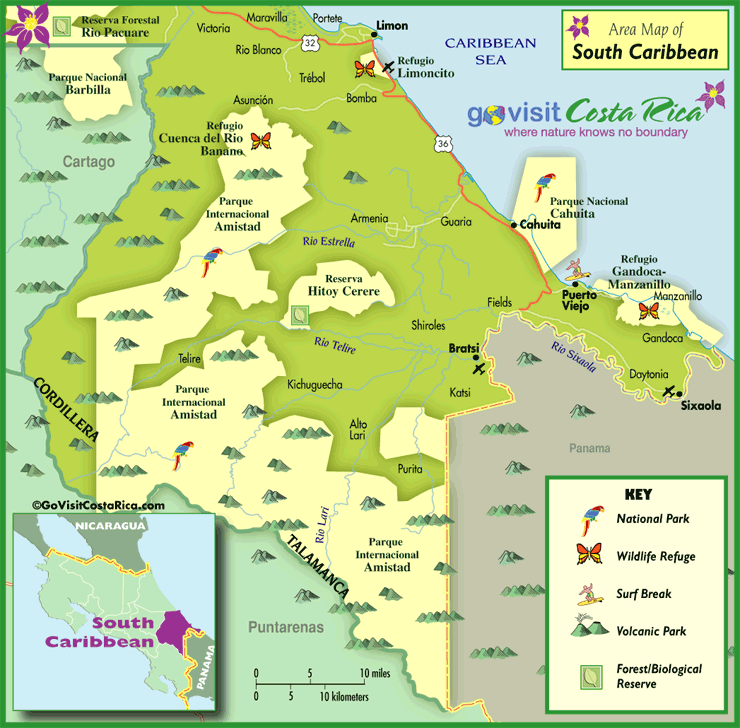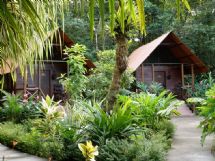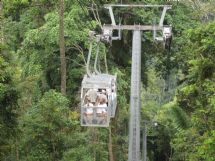Cahuita National Park, Limón
Costa Rica is known for its bio-diversity, ecotourism and national parks.
Cahuita National Park in the Limón Province has to be one of the most amazing parks in the country. It was created in 1970 as a National Monument to preserve the coral reefs off the Caribbean coast. Later, the area was reformed as a national park.
Currently, it relies on donations and does not charge an admission fee.
From San José, take the Guapiles Highway to Limón then go south to the village of Cahuita. The main entrance of the park is located in the town of Puerto Vargas, but the area is well-developed because of its proximity to Cahuita.
The name of the national park comes from “Kawe” which means Sangrillo, and “Ta” which means punta, or point. The Sangrillo tree is considered to be endangered, and there is a beautiful stand of trees along the last part of the trail from Punta Cahuita to Puerto Vargas.
The Coral Reef
The beach is one of the least undeveloped ones in the country, but there’s plenty of things to see. The marine area that is protected is 22,300 ha.
It’s a nesting ground for sea turtles, but that’s not all you’ll see if you go scuba-diving or snorkeling. Eels, sea cucumbers, manta rays, 3 species of sharks and sea urchins call the coralline reef home. There are at least 35 species of coral, 123 species of fish and many molluscs and crustaceans.
Although the best months to be out in the water are from February to April, Costa Rica is always a nice place to visit due to its temperate climate. The waters are crystal blue.
The white sandy beaches lined with palm trees are pristine for every activity.
On Land
The land area of the park covers about 1,100 ha, and it’s just as stunning as the marine section.
Some of the mammals which can be spotted are pacas, northern tamanduas, sloths and mantled howlers. Some of the brightest and most colorful birds in the world can be seen in the national park, for example, green ibises, keel-billed toucans and herons.
And the flora of Costa Rica is unsurpassed. From orchids to mushrooms, there are thousands of species of plants.
Special Activities
There is only one beach suitable for swimming.
The southern beach is a protected nesting ground for sea turtles.
Other beaches have strong currents, which make swimming unsafe. Visitors can enter the beach at Sendero Punta Cahuita.
Sunbathing is also a popular activity. There aren’t many places in the world where you can bask in the sun near the almond trees on the beach.
Map of the Area

At the mouth of the River Perezoso, you’ll find an 18th century shipwreck, another popular attraction. Hike to the shipwreck and enjoy the landscape, because you won’t be able to swim on the beaches.
Remember to only walk on designated trails and follow the park directions to minimize your impact on the ecosystem.
Take a walking tour of the area to get to know the local life. You’ll taste local foods and enjoy the traditions and heritage of the Ticos.
The people are generally friendly, relaxed and have a great history. You can also rent a mountain bike, kayak or surfboard for another adventure. Take a cultural visit to the indigenous communities.
The Cahuita reef was badly damaged in a 1991 earthquake, so it does not have the same bio-diversity as it once did.
The Costa Rica National Parks system is doing everything it can to preserve the reef. There are plenty of camping opportunities in the area, but you’ll also find some beautiful, luxurious resorts and hotel accommodations that are eco-friendly.

















